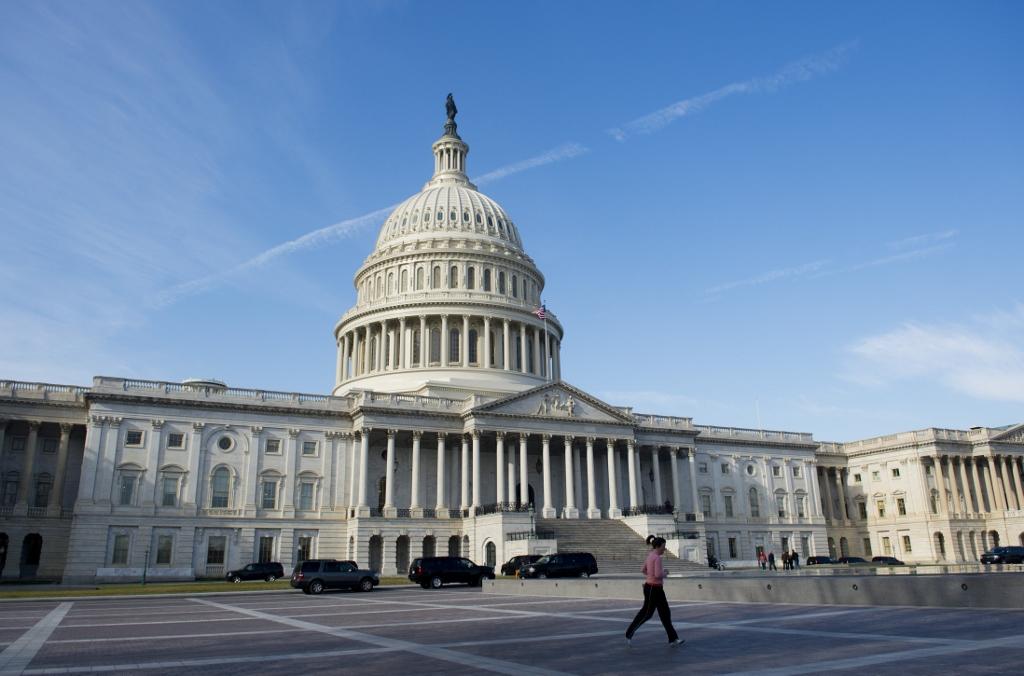Market indicators better than expected, yet “Three Gorges” remain
Congress may have averted the fiscal cliff, but the “Three Gorges” of sequestration, the debt ceiling, and the 2013 budget loom large. The Capital building Jan. 2, 2013 in Washington, D.C.
Well, that didn't take long. Forget the rally; all the headlines were about fears of the looming mini-"fiscal cliff" coming.
Let's agree on one thing: get rid of the word "fiscal cliff." So 2012. We need a new term.
So what do we have? I vote for Ethan Harris at Bank of America/Merrill Lynch, who calls what we are facing the "Three Gorges" — the sequester, the debt ceiling, and the continuing resolution of the fiscal year 2013 budget.
Elsewhere:
1) Pleasantly surprised. That's how I would describe December retail sales. Same-store sales up 4.8 percent, versus expectations of 3.4 percent, according to RetailMetrics.
Fifty-three percent of the companies reporting beat expectations, 47 percent missed, a tad below the historical average, but given how soft things were and how the numbers were coming down, it's still a positive.
Gap strong, discounters like Ross Stores and TJX Cos. were strong, Costco Wholesale and Nordstrom had a good month, as did Macy's.
I know retailers usually complain about weather, but it really was a problem: Too warm for the first three weeks, then a big Midwest storm just before Christmas and another one right after Christmas. And all the talk about the fiscal cliff didn't help.
Retailers did offer enough discounts late in the game to help sales, but it was likely at the expense of margins. I say that because it looks like seven retailers guided lower: Target, Fred's, Kohl's, Macy's, Wet Seal, Cato, Bebe Stores. Only two, TJX and Ross Stores, guided higher.
2) What to do with bank stocks? A lot of chatter on what to do with bank stocks … and I am ambivalent myself. After a disastrous 2011, when many large banks ended the year trading at price to book multiples well below 1, 2012 was a comeback year, with the Bank Index up almost 30 percent.
Now, analysts are weighing in with upgrades. Sterne Agee raised Citigroup and JPMorgan Chase to a "buy" from "neutral" today; JMP Securities raised Citi, JPMorgan, Bank of America, and Goldman Sachs to "market perform," among others, arguing the fiscal cliff deal improves the outlook for the U.S. economy. Bernstein raised the price target on Bank of America to $12 from $11, on JPMorgan to $50 from $47, and on Citi to $47 from $43.
What's up? Banks have become the backdoor play for an improving economy, and in particular housing. Banks were able to make high-quality mortgage loans last year, and were able to offload those loans to Fannie Mae or Freddie Mac. And remember, the Fed was actively buying mortgages, so prices were strong.
But it's not just housing. There is a belief that the consumer is slowing reaching the end of the delveraging process that began in 2008, and banks would benefit from that.
There's also a belief that interest rates will be rising, that the yield curve will be steepening, and that would DEFINITELY help banks.
This all sounds great. I do subscribe to playing banks as a proxy for the housing recovery; that was a successful 2012 strategy.
I have big problems with the idea that the consumer is at the end of the deleveraging process. While the consumer balance sheet is definitely in better shape, sentiment does not reflect that consumers will be spending more. The higher wage tax (a 2 percent increase) that was just passed will definitely impact consumer spending; we saw many retailers weak yesterday on that news.
I'm also not so sure we are going to have a big bump in rates, though I agree the bond rally has little room left to run.
What about earnings? The big argument is that there is greater clarity on regulation — the Volcker Rule and Dodd-Frank Act, etc. — capital levels, and that old litigation costs associated with the mortgage mess will recede.
Maybe. But there is little top-line growth, despite the improving housing picture. I find it hard to believe that sub-2 percent gross domestic product growth is going to be a big driver of bank stocks, now that banks are not the bargain they were a year ago.
3) Nook sales poor for Barnes & Noble; they reported Nook sales for the nine-week period ended Saturday down 13 percent from a year ago. Same store-store sales down 8.2 percent. The issue: Tablets are dramatically taking market share from dedicated e-readers of all sorts, including Amazon.com'sKindle.
More from our partners at CNBC:
Every day, reporters and producers at The World are hard at work bringing you human-centered news from across the globe. But we can’t do it without you. We need your support to ensure we can continue this work for another year.
Make a gift today, and you’ll help us unlock a matching gift of $67,000!
